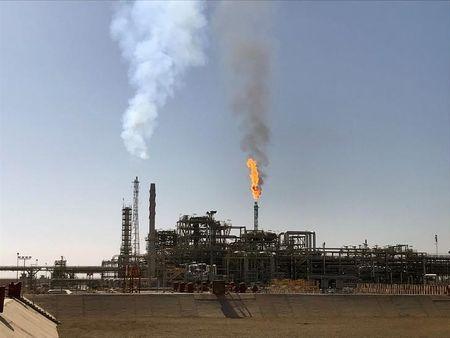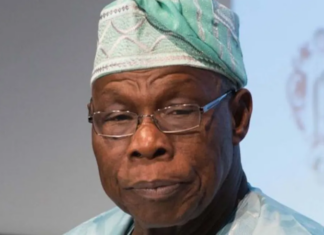Crude prices rose on Monday along with the U.S. stock market on forecasts for robust oil demand growth and concerns that output from OPEC producers would grow at a much slower pace in coming years.
Brent futures gained $1.17, or 1.8 percent, to settle at $65.54 a barrel, while U.S. West Texas Intermediate crude futures gained $1.32, or 2.2 percent, to settle at $62.57.
Oil prices, which were flat earlier in the day, started rising along with U.S. stocks. The S&P 500 Index <.SPX> was up over 1 percent shortly before the close of trading.
“Today’s spike in the equities was a large driver behind today’s (oil) price recovery,” Jim Ritterbusch, president of Chicago-based energy advisory firm Ritterbusch & Associates, said in a report.
Analysts also said prices were propped up by “bullish comments” from ministers from the Organization of the Petroleum Exporting Countries and other global industry players at the CERAWeek conference in Houston, the largest energy conference, on Monday.
Abhishek Kumar, senior energy analyst at Interfax Energy’s Global Gas Analytics in London, said comments about “Venezuela’s deteriorating oil-production profile, together with prospects for strong compliance with the OPEC-led output-cut agreement, (were) supportive of oil prices.”
Ecuador’s oil minister Carlos Perez said Venezuela’s oil production was running 1.5 million barrels per day (bpd) short of its historic output. Speaking on the sidelines of the CERAWeek conference, he noted it was something that the country must address itself.
OPEC Secretary General Mohammad Barkindo and other OPEC officials are expected to hold a dinner on Monday with U.S. shale firms on the sidelines of the conference.
Suhail Mohamed Al Mazrouei, the United Arab Emirates oil minister and OPEC’s current president, said on Sunday that the cartel had not discussed rolling over production cuts next year.
“We feel there is still market overhang,” Al Mazrouei said, adding “there are no talks about (extending cuts into 2019) at this stage.”
OPEC and other major producers agreed to cut combined output by about 1.8 million bpd to drain a global oil glut. The agreement began in January 2017 and runs through the end of this year.
Also on Monday, the International Energy Agency, which advises industrialized nations on energy policies, said it expected annual global oil demand growth to average a fairly robust 1.1 percent to 2023 and noted that OPEC would fail to significantly increase its production capacity.
To meet growing demand, IEA said U.S. shale oil output was set to surge over the next five years, stealing market share from OPEC producers and moving the United States, once the world’s top oil importer, closer to self sufficiency.
.Reuters











